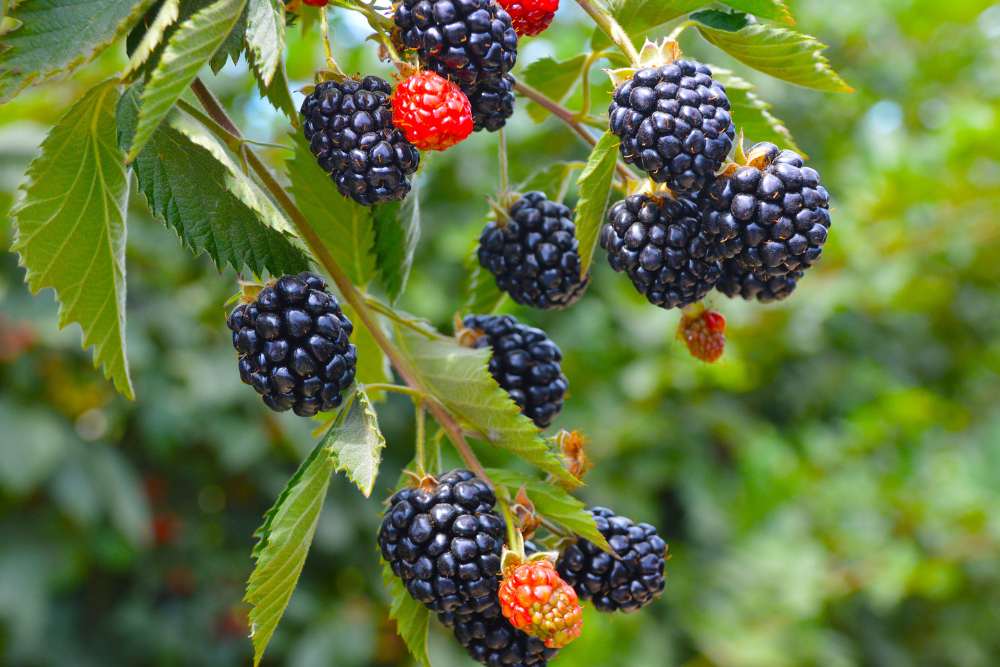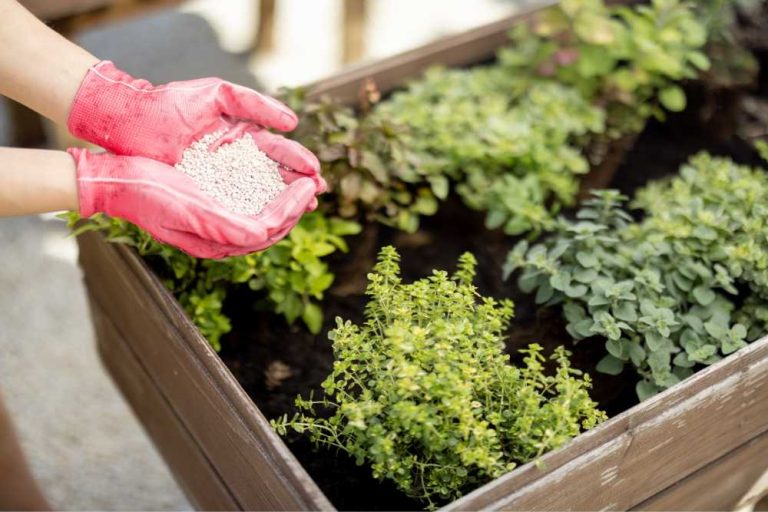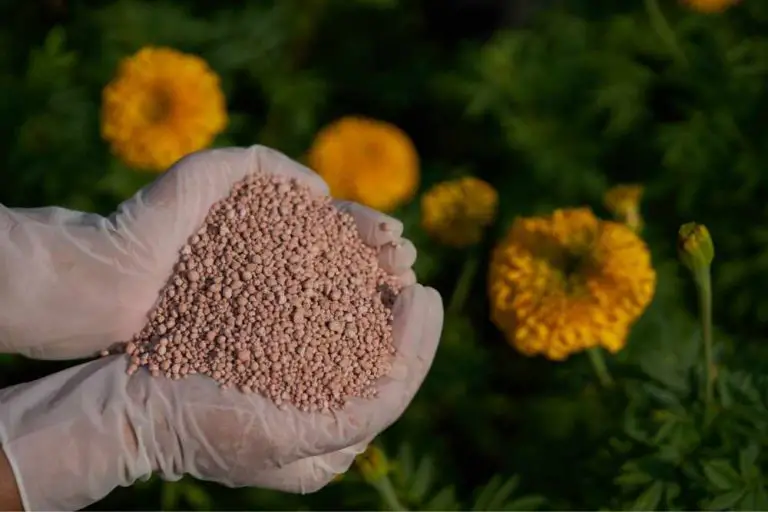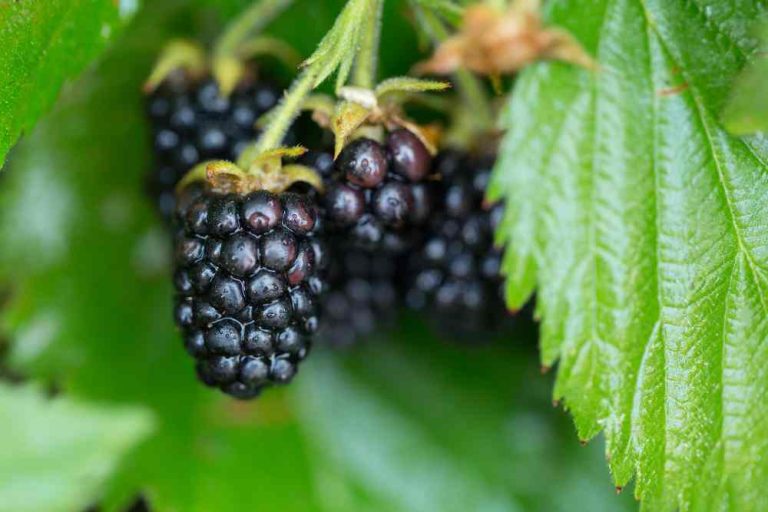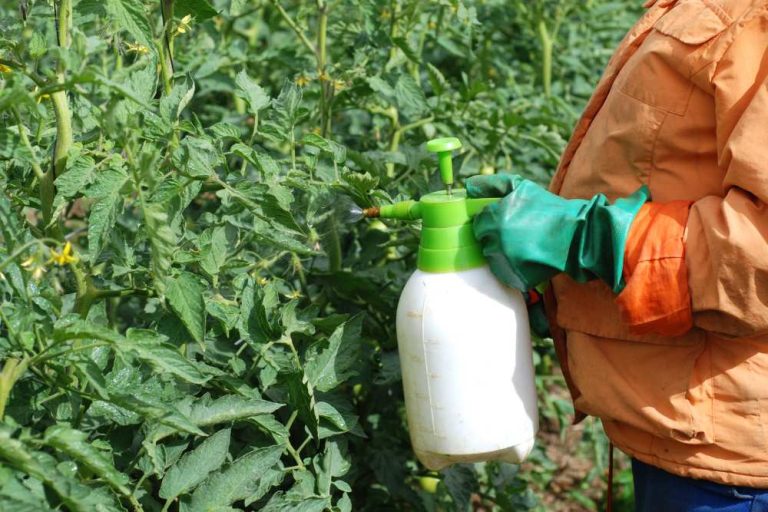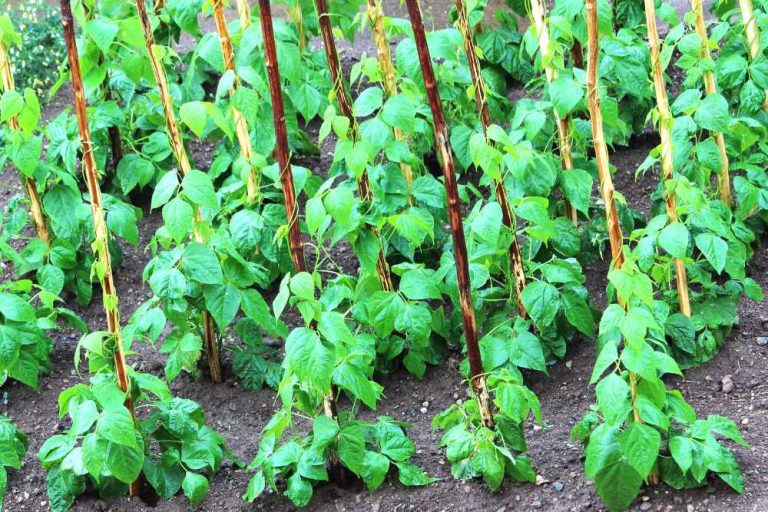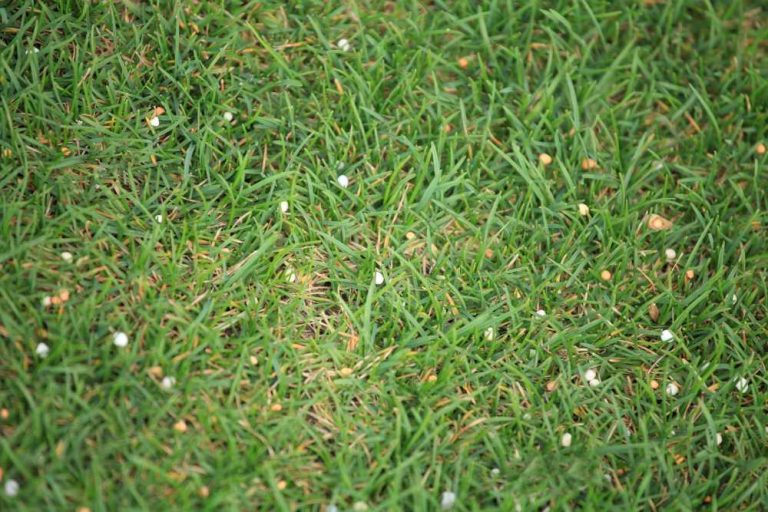Top Best Fertilizer for Blackberries – A Comprehensive Guide
Fresh blackberries taste great and are simple to grow. You might also try making your own blackberry jam. They want to have an adequate water supply in the soil, especially during the summer months when the fruits are produced, but not enough water to keep the soil constantly warm or wet.
Blackberry responds well to the fertilizer applied in spring and after producing Blackberry. The best fertilizer to use contributes nitrogen, phosphorus, and potassium. These three macronutrients support blackberry growth, fruit production, and disease and pest resistance. This article will help you to get an idea of the best fertilizer for blackberries.
Best Organic Fertilizer For Blackberries
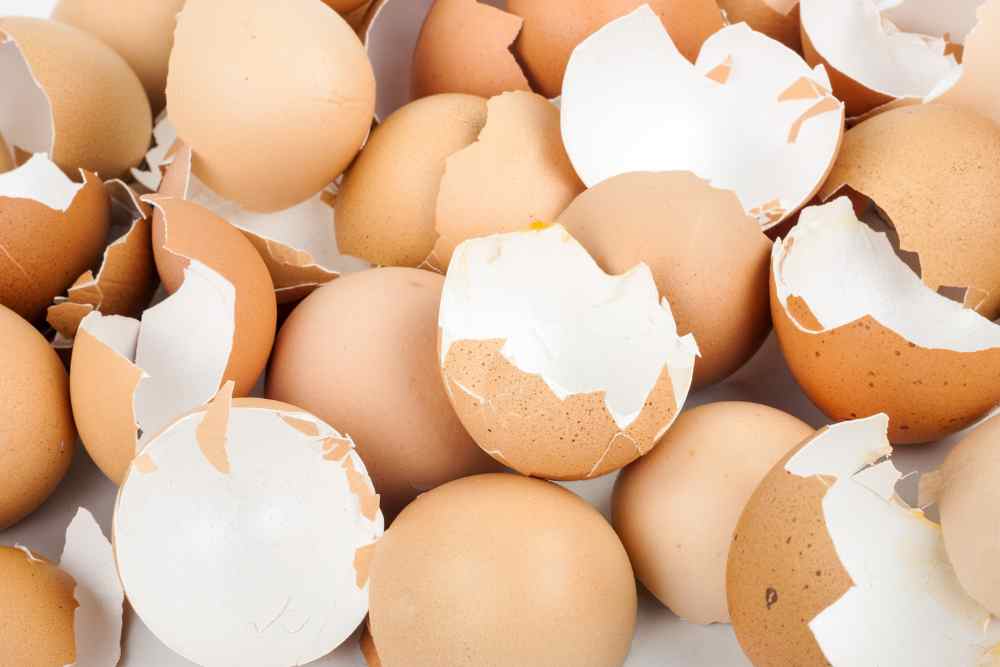
1. Coffee Grounds
Blackberry plants, like other plants, resemble coffee grounds. Any nitrogen-rich fertilizer works well for blackberries. Furthermore, like other fruits and vegetables, blackberries need neutral or slightly acidic soils with a pH range of 5.5 to 7.0.
2. Eggshells
Eggshells enrich the soil with calcium. Crush them and sprinkle them around, or toss them into your garden soil or compost pile. It is a simple method of feeding your plants.
3. Bone Meal
To feed your blackberry bushes, mix some bone meal fertilizer into the ground around the plant’s base to add calcium, phosphorus, potassium, and nitrogen. The best time to fertilize blackberries is in the spring when the plants start to grow. Fertilize in the final stages of autumn, just before the first frost, when using blood meal, cottonseed meal, or fish emulsion.
4. Compost Manure
Organic fertilizers are perfect for delivering nutrients to your Blackberry. To improve the weak garden soil, apply garden compost or rotting manure. Manure should only be used after it has been composted, as fresh manure will burn plants.
Around the dripline of each Blackberry plant, manure should be spread at a depth of 2 inches. Consider putting a thin layer of mulch that is distributed all around the blackberry bush but doesn’t contact it.
5. Liquid Fertilizers
Another suggestion for quickly turning your Blackberry plants green is to give them a light organic liquid fertilizer foliar spray, like fish emulsion or Epsom salt (for magnesium). It should make the plants greener. Spray the leaves with a mixture of one tablespoon of organic liquid fertilizer and one gallon of water.
When Should I Fertilize Blackberries?
Immediately after planting, as soon as growth has begun, fertilize berries. Typically, this occurs three to four weeks after planting in the spring.
Apply additional fertilizer after harvesting. You just need to apply nitrogen fertilizer to blackberries because they are less finicky than some other berries unless soil testing shows that there are other shortages. Strong roots and new shoots are encouraged by nitrogen.
It is also required for healthy green leaves and the development of berries. After the first year, early spring and early summer fertilizer applications are recommended.
NPK ratio
You must use commercial nutrient-balancing fertilizer. A 10-10-10 nitrogen, phosphorus, and potassium mixture is usually the best. These products will also contain trace amounts of other nutrients such as nitrate and boron. After fertilizing, water your plants thoroughly and replace the mulch.
For healthy development and fruit production, blackberries need at least one application of nitrogen-containing fertilizer per year. Apply ammonium sulfate (21-0-0) fertilizer or 2.3 to 2.7 kg of 20-20-20 fertilizer per 100 ft.
Apply an additional 450 grams of ammonium nitrate (34-0-0) per 100 feet right before irrigation if plants are not vigorous. This should be done during bloom or mid-summer. Apply manure or compost in late fall or early winter to allow for salt addition.
Commercial fertilizers for Blackberries
1. EcoScraps for Organic Gardening Berry Plant Food 4 lbs
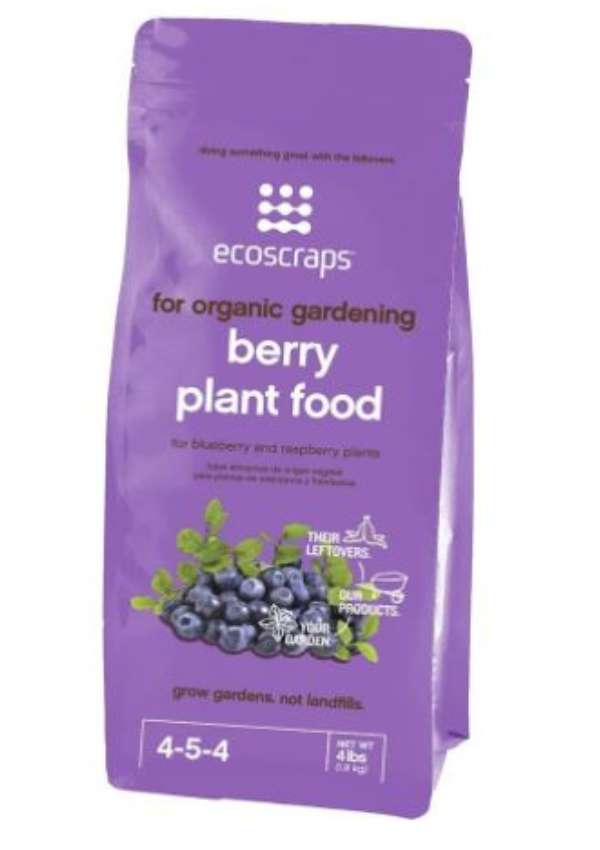
Even though it’s labeled for blueberries and raspberries, it’s also fantastic for blackberries. The 4-5-4 nutrition ratio is moderate enough to feed even immature plants while also promoting fruiting. Before you know it, you’ll be picking baskets full of blackberries!
By using it as fertilizer instead of landfills, they help prevent food waste from ending up there. It’s excellent for the environment and your cash. Additionally, it is organic, making it acceptable to apply on edible plants like blackberries and non-toxic in case your pet accidentally ingests some of it.
- Formulated for berry plants such as blueberry, raspberry, strawberry, and others
- All-in-one particle for smooth, even, and simple application
- Each particle has a complete certified analysis for uniform feeding
2. Dr. Earth Organic Fruit Tree Fertilizer
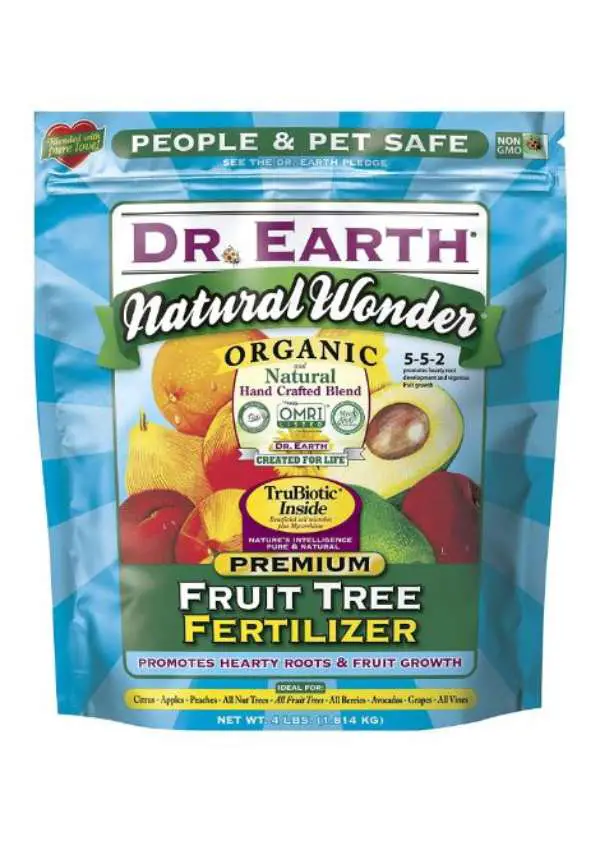
For your blackberry, it’s definitely worth the cost. It’s both people and pet friendly, and the 5-5-2 nutrient content supports both healthy leaf development and tasty berries. This fertilizer is also intended to nourish the roots of your blackberry bush, keeping it strong and healthy from leaf to root. The only disadvantage is that it stinks a lot.
Handmade with feed-grade ingredients, enriched with organic nutrients that can be found in fish, fish bones, land plants, ocean plants, fish, and earth-mined minerals. This nutritionally balanced composition encourages exceptionally rich and healthy soil, which is ideal for growing the healthiest plants. Healthy soils can produce the most nutritious fruits, vegetables, trees, and floral plants in your house and garden.
- Promotes healthy root growth
- Slow-release fertilizer
- Stimulates berry and leaf growth equally
- Organic – There are no synthetic chemicals or GMO-infested chicken manure
3. Jobe’s Organics Fruit&Citrus Fertilizer
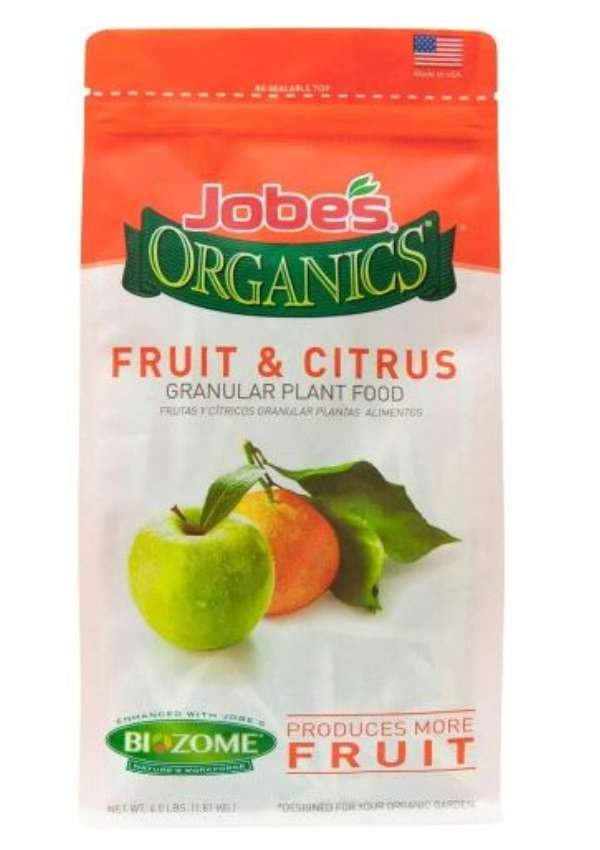
This granular plant food is great if you’re gardening on a budget but still want to feed your blackberries high-quality nutrients. This is another amazing organic product made with Biozome, a beneficial bacteria blend meant to encourage quick growth.
You’ll quickly notice stronger roots, more substantial foliage, and more harvests! Additionally, the nutrient composition of 3-5-5 is modest yet efficient enough to produce advantages. Older bushes benefit greatly from it since it promotes fruiting. Young blackberry bushes should focus their energy on leaf growth if they want to produce fruit.
As this is a slow-release treatment, use it only every 4-6 weeks during the growing season. Of course, if you believe your bushes do not require it, you can apply it less frequently, but we recommend paying heed to the packaging!
Dogs adore the smell of the product, which is like many organic products’ the only disadvantage. Even if it is non-toxic, it might cause unpleasant stomach symptoms, which no one wants. Keep away from curious animals!
- Slow-release
- Organic
- Designed specifically for fruit
- Improves overall soil structure and quality
- Crop production is increased
- Can cause tummy upset in dogs
- Not good for young blackberry bushes
4. Berry-tone Fruit & Berry Food
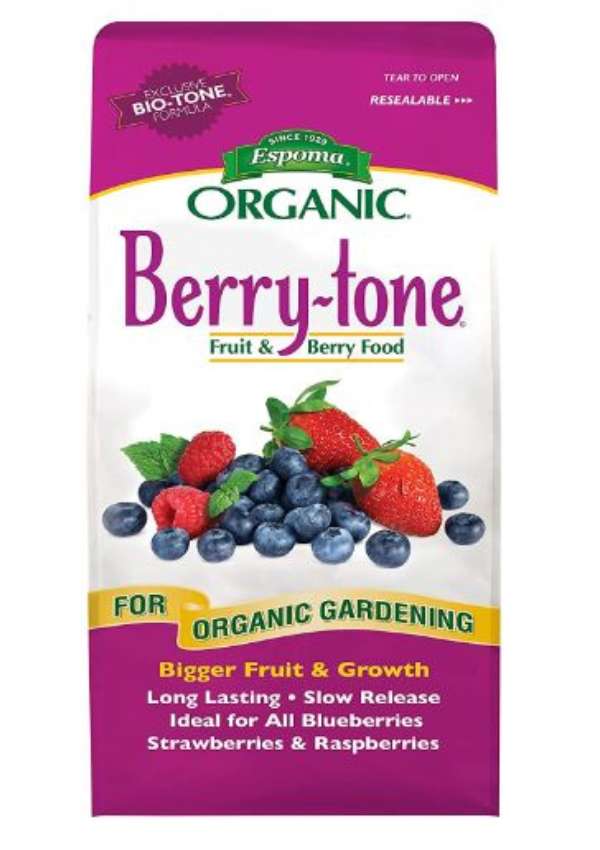
This fertilizer is another great choice for your blackberries! It is also granular and organic. This fertilizer’s goal is to increase the amount of tasty fruit that your blackberry plants produce. Additionally, it releases slowly.
This fertilizer is excellent for blackberries even though it doesn’t specifically state that it is meant for them. The 4-3-4 nutritional composition is organic and not too harsh. However, it is best for younger blackberry bushes.
The higher nitrogen level does contribute to the production of sweeter fruit, but it also encourages green leafy growth rather than fruiting. Using this product on early plants and switching to one with a higher phosphorous concentration for fruiting seems to work best.
- Organic
- Produces tasty fruit
- Excellent for younger plants
- Will not cause your bushes to burn
- Slow-release fertilizer
- But it promotes leaf development rather than fruiting
5. Miracle-Gro Performance Edibles Plant Nutrient Granules

This Miracle-Gro slow-releasing granular fertilizer is last but surely not least. If you haven’t heard of Miracle-Gro, you’ve probably been living off the grid your entire life. The 7-6-9 nutrient composition is more potent than the others on this list, and it is ideal for well-established blackberries. Due to its design, which allows you to sprinkle it directly onto your soil, this product is by far the easiest to use. The lid opens up. It’s especially useful when it’s July and 110 degrees outside and all you want to do is run back inside.
The decreased phosphorus level compared to the nitrogen content causes greater leaf growth than fruit growth. However, a larger potassium content might be able to benefit you since it will promote quick growth. Whatever happens, there will be progress!
- Trusted brand
- Slow-release
- Organic
- Easy application
- Lower phosphorus content
- The convenient application allows for heavy-handed application
6. Lily Miller All-Purpose Planting & Growing Food
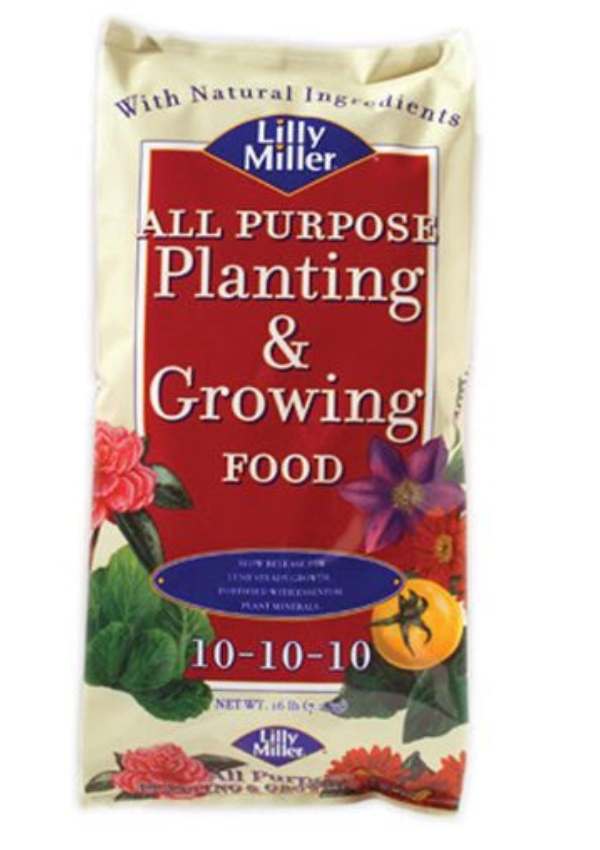
With Lilly Miller All Purpose Planting & Growing Food, it’s simple to provide your plants with the ideal ratio of nutrients so they can develop lush foliage, vibrant blossoms, and mouthwatering food.
A special fertilizer that offers nitrogen from 4 separate sources has been created by combining natural components with conventional plant meals. To assist plants to get off to a strong start, they’ve incorporated a combination of nutrients that are readily available to plants. Other ingredients have a longer shelf life and can be used to feed your garden for up to 6 weeks.
- Slow release promotes lush, consistent development.
- Contains vital plant minerals
- Natural substances are used.
- Use for all-purpose
- NPK 10-10-10
- 20+ Chic Boho Bedroom Ideas for a Cozy and Stylish Retreat - June 20, 2024
- 12+ Modern Boho Living Room Ideas to Create a Unique Oasis - June 10, 2024
- 10 Stunning Canopy Bed Ideas for a Dreamy Escape - May 16, 2024

